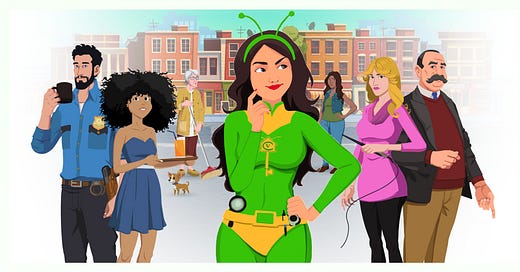From Classrooms to Emojis: Why Hair Representation Matters
News from the Hispanic World in One Click
Welcome! La Chapulina Verde is bilingual. Every article is available in English and Spanish. Enjoy reading in your preferred language. Keep up to date and follow us on our social networks! Instagram, Threads, Facebook, and YouTube.
In many schools and workplaces, Black Americans have faced unfair treatment just because of their hair. To help stop this, 27 U.S. states and many cities have passed their own laws called CROWN Acts, which protect people from being punished or discriminated against for wearing natural hairstyles like braids, locs, afros, and twists.
Even though this is progress, unfair treatment still happens, which is why people are asking for a federal CROWN Act, a law that would protect everyone across the country. In schools, Black students are punished four times more often than other students, and a lot of the punishments are because of dress codes that say hairstyles are “unapproved.” In jobs, many Black women say they’ve been sent home or even denied interviews because of their hair. About one-third of young Black women believe they didn’t get a job interview because of their hairstyle.
The CROWN Act has already passed in the U.S. House of Representatives twice, but it hasn’t passed in the Senate yet. If it becomes a federal law, it would officially say that natural Black hairstyles are part of a person’s racial identity, and treating someone unfairly because of their hair would be considered racial discrimination.
Along with this, there’s a new push for more representation in emojis. Out of almost 3,800 emojis, none show Black or mixed-race hairstyles like braids, cornrows, or afros. That could change in 2025, thanks to a new campaign by Dove and a group called RISE.365. They want people to support the idea by using the hashtag #CodeMyCrown on their Instagram.
The founder of RISE.365 said that emojis help people feel seen and valued, and it’s time that Black hairstyles are included in our digital world too. Many Black people use emojis to express their identity, and better emoji representation would help people feel more accepted, including Afro-Latinos.






